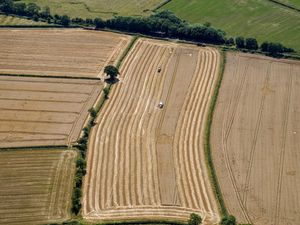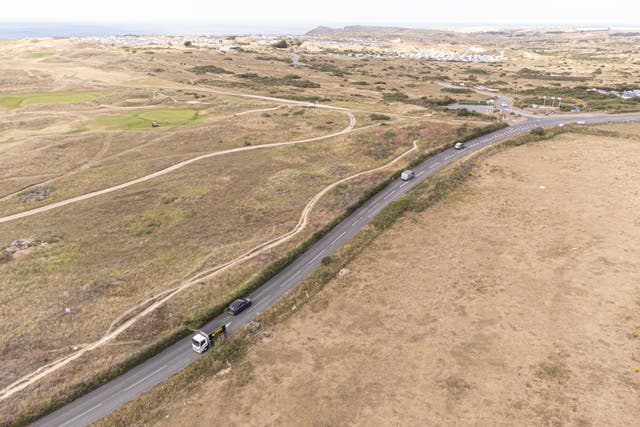Worsening conditions will force people out of farming, industry warns
Agricultural workers have told of the impact of drought and rising costs.

Droughts and rising costs due to inflation will “force people out of farming”, and workers need to “talk to each other” if struggling, farmers have said.
British farmers have detailed the difficulties caused by drought, which has forced an earlier harvest and will leave them struggling to store and sell goods.
This comes as a four-day amber warning for extreme heat in parts of England is due to come into effect from Thursday, with temperatures set to climb to 36C in some places.
Andrew Francis, 55, from Breckland, Norfolk, who grows root vegetables and combinable crops, detailed the difficulties caused by early harvesting after the grain season only had 35% of its long-term average rainfall.

He said it is a “really difficult commercial environment to try and diversify in” because farming profit margins have “eroded so much over the last few years”, leaving no “resilience funds” for a lot of farm owners.
He told the PA news agency: “I can understand why people would (leave farming), and I can understand that there are a lot of barriers out there that make it difficult to look positively on the future.
“I think that is the problem, and that will force people out of farming.
“The reality is that in the high temperatures and the persistently dry conditions, we just haven’t been able to keep up with demand.
“There will be a negative impact but it’s very difficult to know how big that negative impact will be.”
Mr Francis urged farmers to “exhaust every avenue for help” and speak to “as many people as possible”, but he accepted some people have done so and will leave the industry regardless.
Due to the rising numbers of farmers leaving the industry, the Government has offered the Lump Sum Exit Scheme which will provide a payment to help them.
Farmers are expected to either rent or sell their land, or surrender their tenancy in return for the payment, and have until September 30 to apply.
The scheme, which opened in April, followed a public consultation that revealed some farmers want to leave or retire from the industry but found it difficult for financial reasons.
Matt Styles, 27, from Whittlesey, Cambridgeshire, runs a farm with his wife and has been struggling with feeling low due to the increasingly difficult conditions.

Because he is unable to live off his farm earnings alone, Mr Styles also undertakes contracting work on other farms.
Mr Styles recently posted on Twitter about “one of the worst days” he has ever had in farming, detailing how he called the Farming Community Network charity helpline because he was “struggling to deal with what happened mentally”.
Speaking to PA, he said: “It was great to have a chat with someone that really understood what I was going through.
“Sometimes I think the only other person that could really understand what it’s like is another farmer, because I think a lot of us do go through the same stuff, or similar experiences, and sometimes it’s nice to chat about those things.
“I needed to reach out because sometimes when you are stuck in your own head, it can be a very lonely place to be.
“Often, I think what we need more than most, especially in the farming industry, with it being quite a lonely profession, is just human connection.
“That’s been the nice thing about Twitter, is people’s messages of support and love.”

Hannah Buisman, 24, from Welwyn, Hertfordshire, works alongside her family on their farm, where they have traditionally grown cereals, oats, wheat, barley and beans but have diversified into growing vines.
Their harvest was also brought forward by the heat, so they were able to turn one of their traditional 15 acre cereal fields into a vineyard, as vines thrive in hot, dry weather.
Ms Buisman told PA: “It has been a real challenge because you are very concerned for the health of your crops because of drought and also the safety of your crops due to the fear of fire.”
She urged people who are struggling to talk to others in other linked sectors, as well as reaching out to friends and family to seek support where needed.




